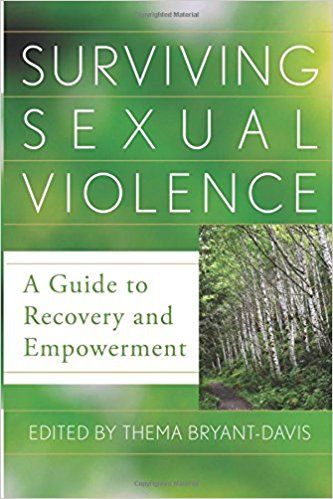
An Ode to Marginalia
(TW: some mention of sexual assault)

But then, a note written in pencil on one of the first pages of the book gave me pause. It said “To whoever is reading this, please know that you are not alone.” I don’t really want to go into my history with sexual assault, because that’s not really the point. But that note was so beautiful, supportive, and necessary, that it made me wonder about the people who read that book before me. The book was old—it seemed like a first edition (it was originally published in 1988) and it was obvious that quite a few generations had read through it, looking for answers to questions I will never know.
The reason I bring this up is that I love little handwritten additions to library books or books I borrow from friends. I don’t know who wrote that note, but I could relate to it, it felt important, and I hope that person knows that everyone reading that book will feel less alone.
This may be controversial for the librarians reading this post (I’m sorry, I promise I never write with pen, just pencil), but marginalia gives me life when I am reading previously-used books. From simple underlining (oh cool, the previous reader thought this part was important too) to silly additions to the margins (sometimes, a series of question marks can validate my own confusion to a super helpful level. Yeah, I didn’t get that part either, what was this author THINKING?), marginalia can make reading interactive in an extremely safe way. I am engaging with content, and (kind of) someone’s thoughts on that content, and I don’t even know who that person is. It feels strangely intimate, but also safely detached.
I really started thinking about marginalia when I was listening to Witch Please!, a podcast that does feminist readings of the Harry Potter books and movies. When discussing books mentioned in the narrative, sometimes marginalia comes up, and there is discussion of what marginalia actually is: are they private notes? Are they knowledge production? Are they public knowledge, in the case of the Half-Blood Prince and his potions and spells shortcuts? If a book belongs to a library, will marginalia be erased? Does marginalia enrich a reading experience?
These conversations struck me as so interesting that from then on, I started paying more attention to marginalia and underlining, even as I am reading more academic books about theory rather than stories. I’m a huge fan of the Top Highlights feature on Kindle, for example—I can see the parts people connected to the most, and that’s so significant to me.
Another example of this is when I was reading When I Hit You by Meena Kandasamy. I had borrowed a friend’s copy and it was so affirming to see that the passages that had knocked the wind out of me had done the same for my friend. At one particularly enraging point of the narrative about an abusive marriage, my friend wrote “FUCK YOU!!” in the margin of the book—it was like a scream into the void, but I was able to hear it.
This blog post is simply an ode to marginalia and shared reading experiences. I’m not arguing for more people to scribble on library books (I’m sorry, librarians! I promise, I’m not!) but I am curious about other people’s experiences with marginalia and reading other people’s books. Please feel free to tell me your stories in the comments below.
















